The “Challenging” Geography; Majed Al-Zeer and the Experience of Palestinian Activism in Europe

Majed Al-Zeer: The participation of many Palestinian and non-Palestinian intellectuals, politicians, and activists in supporting this cause has effectively contributed to laying the foundations for the defense of the Palestinian cause in the diaspora, par
In July 1996, an Egyptian intellectual delivered a lecture in London, the capital of the United Kingdom, to an audience primarily composed of activists dedicated to the Palestinian cause. He addressed what he termed the "transference mentality in Zionist thought" and highlighted its detrimental impact on the Palestinian struggle. During this period, there were concurrent initiatives supporting the Palestinian cause; however, the Oslo Accords induced a sense of shock and inertia within Palestinian efforts across Europe.
Three years following the Oslo agreement, which aimed to establish a Palestinian state on the remaining portions of their territory, individuals advocating for Palestine and those invested in its cause began to perceive a looming threat. This concern arose as the initial intifada waned and the Palestinian cause entered a phase of political and intellectual decline, influenced by the so-called peace process. The proclaimed establishment of this state implied the negation of the right of return for Palestinians who had been forcibly displaced from their land in 1948 and 1967, along with other significant issues that cannot be elaborated upon here.
During that pivotal historical period, the prominent Egyptian intellectual Abdel Wahab al-Messiri delivered a lecture at the inaugural conference of the Palestinian Return Centre, which was founded in London that same year. In addition to his role as a lecturer, Messiri served as a vital advisory member of the center, which continues to operate today. This account is shared by Majed Al-Zeer, the president of the European-Palestinian Council for Political Relations and the former president of the Return Centre from its inception until 2021. Al-Messiri's presentation at the conference was consistent with his intellectual legacy, as he is renowned for his comprehensive work on the Zionist movement and various scholarly contributions concerning Palestine.
In the course of that lecture, Al-Messiri articulated that the return of Palestinian refugees cannot occur concurrently with the influx of Jewish individuals into Palestine. This perspective seeks to address one of the most contentious issues within Western discourse: the response is negative; however, it necessitates the cessation of the so-called "Israeli Law of Return," a matter that Al-Messiri has frequently cautioned against, in favor of implementing the Palestinian right of return, which is enshrined in international law. This stance restricts the potential resolutions to the Palestinian-Israeli conflict to a singular approach, specifically the creation of a state governed by the majority. This proposition is likely to be dismissed by the Israeli populace, particularly considering that current demographic statistics, excluding the return of refugees from abroad, already favor the Jewish population. The situation would be further exacerbated should these refugees return, as it would undoubtedly shift the demographic balance significantly in favor of the Palestinians, a scenario that Israel would find unacceptable, given that the foundation of the Israeli state is rooted in expansion and exclusion.
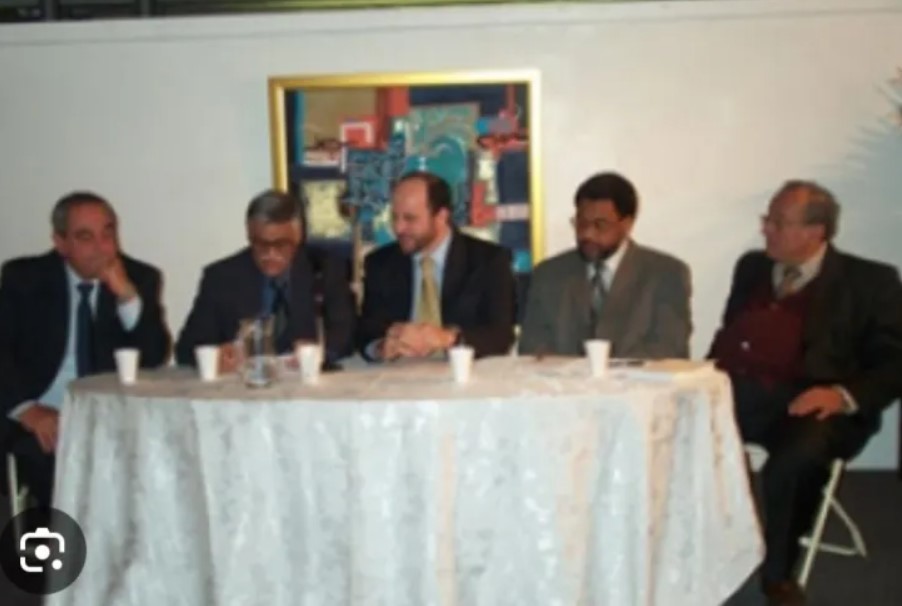 An archival photo shows the late Egyptian intellectual Abdel Wahab El-Messiri (right) at the first conference of the Palestinian Return Centre in London (Al Jazeera).
An archival photo shows the late Egyptian intellectual Abdel Wahab El-Messiri (right) at the first conference of the Palestinian Return Centre in London (Al Jazeera).
Another significant contributor to the Center for Return and Palestinian activism in Europe is Dr. Salman Abu Sitta, a Palestinian historian and researcher. He articulated the demographic distribution in historic Palestine and characterized the right of return as “a sacred, legal, and possible right.” Dr. Abu Sitta critically examined the foundational assumptions of the “Zionist project,” particularly regarding the alleged scarcity of land and the supposed absence of refugees in historic Palestine. For advocates of the Palestinian cause in the West, the arguments presented by Al- Messiri and Abu Sitta served as pivotal intellectual foundations, transitioning their efforts from a defensive stance to an offensive one, as noted by Al-Zeer. This shift has informed the strategic direction of Al-Awda Centre, which continues to champion the “abolition of the Israeli Law of Return” and the realization of the Palestinian right of return, as previously mentioned.
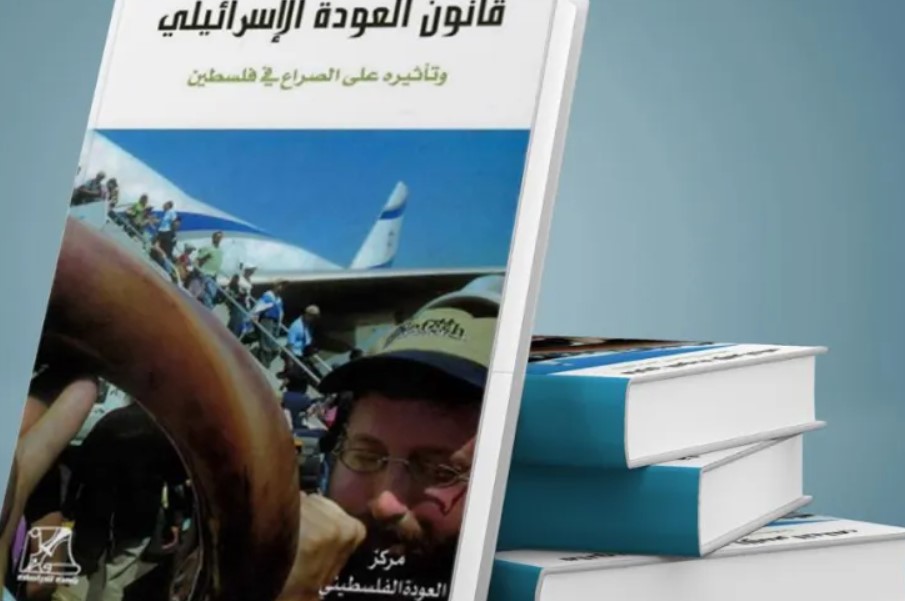 The book Israeli Law of Return by the late Egyptian intellectual Abdel Wahab El-Messiri (Al Jazeera).
The book Israeli Law of Return by the late Egyptian intellectual Abdel Wahab El-Messiri (Al Jazeera).
The involvement of numerous Palestinian and non-Palestinian intellectuals, politicians, and activists in advocating for this cause has significantly established the groundwork for supporting the Palestinian cause within the diaspora, particularly in Europe. This support is viewed as an issue that extends beyond national boundaries, embracing the broader concept of a collective nation. This report will outline a segment of the efforts dedicated to Palestine in Europe, through a tour with Majed Al-Zeer. This endeavor not only benefits those advocating for Palestine but also those with a civilizational perspective on various issues, enabling them to engage in geographical regions far from their native lands. Amidst the challenging landscape that witnessed the rise of the Zionist movement and received unwavering backing for the establishment and perpetuation of the State of Israel, Palestinians and their allies committed to this just cause have undertaken what some label as an "impossible task." While accompanying Majed Al-Zeer on this tour, he consistently highlights the contributions of numerous Palestinian national figures who have played a vital role across organizational, legal, political, and intellectual domains, and who continue to champion this cause today.
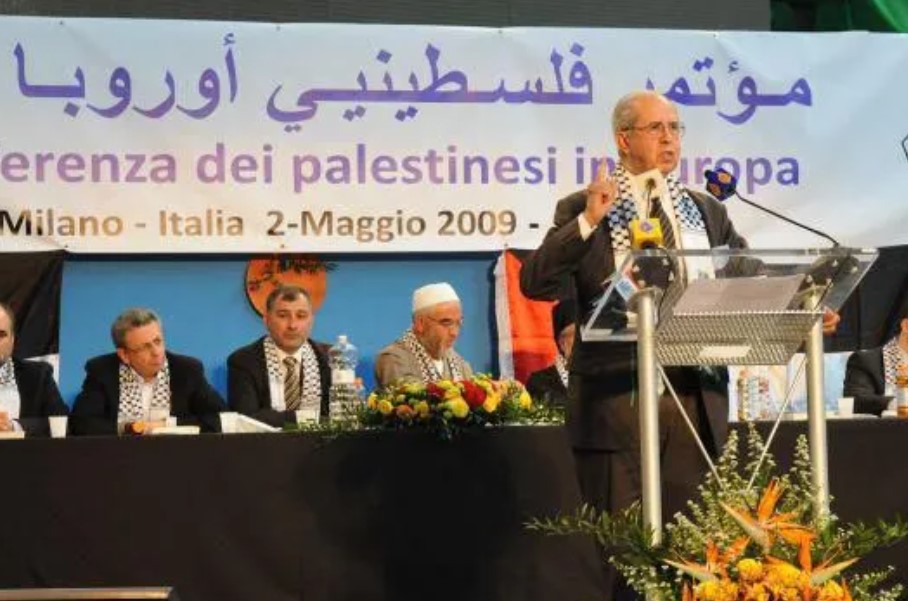 The Palestinian historian Salman Abu Sitta delivering a lecture at the Conference of Palestinians in Europe in 2009 (Al Jazeera).
The Palestinian historian Salman Abu Sitta delivering a lecture at the Conference of Palestinians in Europe in 2009 (Al Jazeera).
Palestinian Return Centre and European Palestinians Conference
At six o'clock in the morning, I encountered Majed Al-Zeer in a hotel in Doha. He came as a visitor from Germany, his place of residence. Prior to the onset of a busy schedule filled with meetings, we convened at the breakfast table. The only detail that remains vivid in my memory is the coffee cup, likely due to the overwhelming focus on absorbing his experiences, which spanned over three decades. Unfortunately, the three hours we had were insufficient, and my attempts to engage in side conversations proved ineffective.
Alongside the interview, Al-Zeer presented three books that chronicle this extensive journey. The first book, titled “Closer to Return,” comprises a compilation of articles authored by Majed over a span of more than three decades, addressing various developments and articulating perspectives on Palestinian popular action. The second book, set to be published shortly, is entitled “Palestinian Popular Action in Europe: Achievements, Challenges, and Prospects,” co-written with Maher Hijazi. The third work, currently in progress, is named “Factors that Keep the Palestinian Cause Alive,” co-authored with Ibrahim al-Ali. This book is being developed based on the authors' practical experiences and intellectual insights, focusing on the strengths of the Palestinian people in their quest to reclaim their land, which has significantly contributed to sustaining the cause both domestically and internationally, fostering its growth and evolution.
Throughout the dialogue, three predominant themes emerged and shaped the direction of the discussion. The first theme was unmistakable: the ongoing interplay between the geography of Europe and the Palestinian efforts within that context, emphasizing that activism related to Palestine should not be viewed as geographically or intellectually detached from the realities occurring within Palestine itself. The establishment the Palestinian Return Centre, aptly named, followed the Oslo Agreement, highlighting the urgent threat to the Palestinian cause and the fundamental right of Palestinians to reclaim their lands.
The Palestinians European Conference was established in 2003, following the disclosure of the Geneva Agreement that was signed in December of that year. The organizers perceived this agreement as a potential threat to the right of return and the refugee situation, which the signatories promoted as a resolution to the Palestinian-Israeli conflict. The inaugural conference was conducted under the motto “We will not compromise on the right of return” and has since been held in various European capitals. In 2015, the Return Center was granted membership in the United Nations, subsequently engaging in the political process, initially in the United Kingdom and later expanding to other European countries.
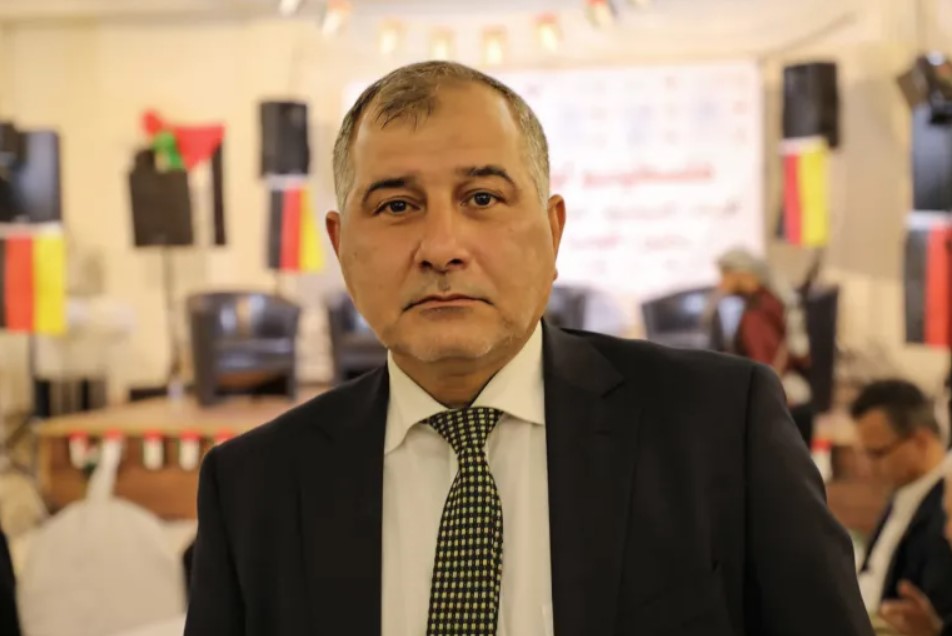 The President of the European Palestinian Council for Political Relations (EUPAL), Majed Al-Zeer (Al Jazeera).
The President of the European Palestinian Council for Political Relations (EUPAL), Majed Al-Zeer (Al Jazeera).
Furthermore, in response to cultural challenges, the conference organizes an annual event named “Entema” every May, which is dedicated to preserving Palestinian identity, enhancing national sentiment, revitalizing collective memory, and encouraging the Palestinian diaspora to uphold their national rights. The conference is also committed to establishing the concept of return as a tangible reality. It initiated a cultural initiative known as “Return Convoys,” where each participating country represents a convoy that symbolizes the hope of returning to Palestine one day. Additionally, the Return Center has developed several strategic projects aimed at safeguarding the right of return. This underscores the significance of institutions as a legal and institutional framework, enabling the transfer of knowledge and experience to wider communities and future generations.
The second theme that is also highlighted in the book "Palestinian Popular Action in Europe" emphasizes the significance of institutionalizing efforts, documenting experiences, sharing expertise, and transmitting knowledge to younger generations. It is our duty to showcase to future generations the most notable achievements we have accomplished, thereby facilitating their journey and equipping them with the knowledge necessary for their development. The presence of Palestinians in over 100 countries, along with the growing support for this cause, underscores the necessity for organized efforts that assess and institutionalize experiences. This should occur at various levels, including structural frameworks, intellectual foundations, and the objective presentation of both opportunities and challenges. Furthermore, the establishment of cross-border institutions is crucial for fostering a cohesive national action across the European continent.
As an example, an entire chapter in the book “Palestinian Popular Action in Europe” is dedicated to the topic: How to Begin Preparing for the Palestinians of Europe Conference. Within this chapter, the authors meticulously outline the specifics of organizing the conference, including the formation of committees and their respective responsibilities, as well as the selection of the conference name, location, and invited guests. Al-Zeer highlights the paramount significance of documentation and archiving, which is addressed by a dedicated committee for this purpose. Additionally, the book discusses the vital role of women, the necessity of conducting annual opinion surveys to assess the conference's effectiveness, and the importance of incorporating these evaluations into future planning, among numerous other insights provided throughout the text.
To date, over 20 conferences have taken place, with the emerging generation in Europe assuming leadership and organizational responsibilities. This group was instrumental in spearheading both university and grassroots movements advocating for Palestine following the recent war initiated by the occupying forces in the Gaza Strip.
The third theme addressed in the discussion pertains to the necessity of mobilizing all available energies for this cause. Al-Zeer emphasizes the significance of engagement across various domains, including political, popular, media, legal, humanitarian, and other relevant areas. He asserts, “It is crucial to maintain momentum, even with minimal effort, as this can significantly enhance the outcomes in support of the Palestinian cause or any other initiative. Many of the achievements we have realized through Palestinian efforts in Europe originated from modest beginnings that we did not anticipate would yield such substantial results.
The contributions of Al-Messiri and other intellectuals, scholars, and activists, regardless of the scale of their involvement, serve as a testament to the value of proactive participation. Despite the successes we observe today, Al-Zeer consistently emphasizes that the extent of our efforts has not yet reached the desired level, nor does it align with the gravity of the situation and the significance of the cause. He notes that displaced Palestinians and Arabs in the diaspora must better leverage these developments, as the predominant group of demonstrators and advocates for the Palestinian cause remains comprised of non-Arabs and Muslims.
Europe and the War on Gaza
Since the onset of the Israeli military's offensive against Gaza on October 7, 2023, which has now extended into its tenth month with no clear end in sight to the bloodshed, there has been a notable surge in pro-Palestinian protests across the European continent.
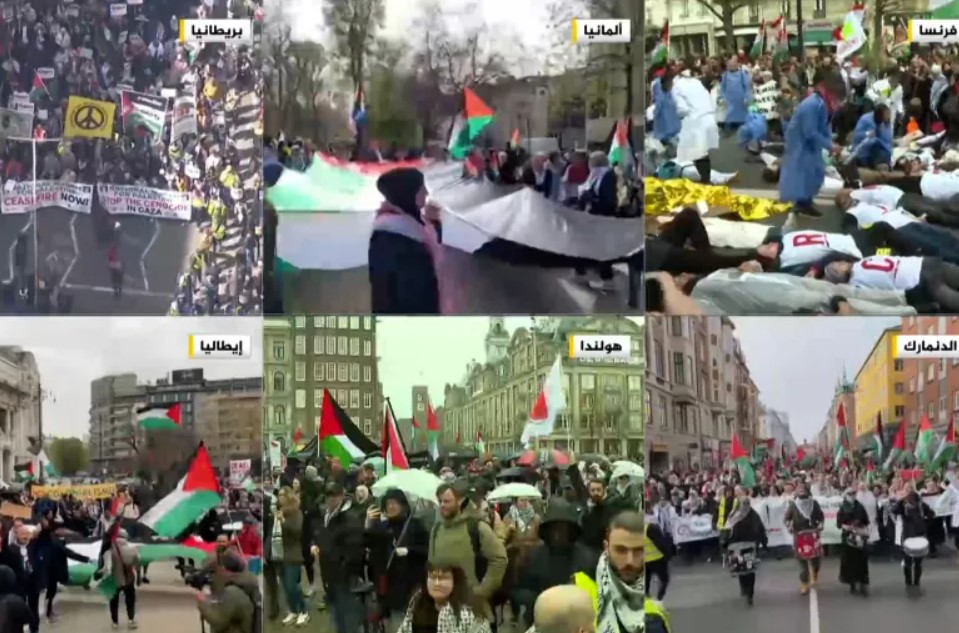 Demonstrations in various European cities in support of Gaza (Al Jazeera).
Demonstrations in various European cities in support of Gaza (Al Jazeera).
Over 22,000 demonstrations and events have occurred in more than 600 cities across 20 European nations, as reported by the European Palestinian Media Center (EPAL). The significant participation of individuals who are neither Arab nor Muslim in these protests has prompted Al-Zeer to emphasize the necessity of viewing Europe not as a monolithic entity favoring Israel, but rather as a dynamic environment that can be engaged and influenced. This perspective underscores the idea that political activism is fundamentally about accumulating support across various domains for the cause at hand, and the mobilization observed in Europe indicates a viable foundation for further efforts and development.
Al-Zeer asserts that the current situation in the West is of significant consequence. He notes that the establishment of Israel was a project meticulously planned and supported by Western powers, indicating that the connection between the West and this settlement initiative is fundamentally intertwined. He further elaborates that “We are not talking here about a foreign affair for many Western countries, but rather a domestic affair par excellence,”, and this explains what Al-Zeer describes as the” hysteria with which Western countries dealt with what happened on October 7.”
In this context, the critical role of social media becomes evident. The substantial influx of information directly reaching individuals' devices has profoundly influenced the scale of the protests that have taken to the streets, with a diverse array of societal groups and political affiliations actively participating in this movement. This engagement has also shaped the discourse, as certain "social elites" have begun to adopt language that condemns the actions of the occupying forces.
While these positive shifts do not necessarily indicate an immediate change in official Western policies regarding Palestinian rights, they do suggest that the dominance of the Israeli narrative is waning. There is an increasing recognition of the Palestinian cause and the realities of occupation. Al-Zeer reiterates the significance of public involvement in advocating for this cause during this pivotal moment in history.
Challenges and Prospects
As the session drew to a close, I expressed a keen interest in understanding the obstacles encountered by Palestinian initiatives in Europe. Al-Zeer provided an in-depth analysis of the significance and delicacy of this matter, a theme that is also prevalent in his literary works. The most significant challenge identified is the influence of the Israeli lobby in the West, which he characterized as an existential threat. The European landscape holds critical importance for Israel, and it is understandable that any emergence of a powerful movement in this region provokes a sense of hysteria, prompting them to combat us through security measures, financial means, media manipulation, and legal actions. In 2010, Israel designated the Al-Awda Centre, along with its trustees and executive personnel, as terrorist entities, a decision made by then Defense Minister Ehud Barak. This action enabled pro-occupation lobbies to discredit all activists, undermine conferences, and attempt to obstruct their efforts. The repercussions of this designation were significant, particularly affecting communication with our communities in the 48 territories, as well as imposing restrictions on the families of workers, both in Europe and when attempting to access Palestinian territories. Nevertheless, in spite of these limitations and the Israeli classification, the center achieved recognition as a non-governmental organization by the United Nations in 2015, demonstrating a level of professionalism in its operations and content that effectively counters the Israeli claims regarding the center and its personnel.
The second challenge pertains to the detrimental influence exerted by certain ambassadors of the Palestinian Authority, whose actions have undermined Palestinian initiatives, leading to distortion and obstruction that adversely affected participation and engagement. It is important to acknowledge, however, that other PA ambassadors have contributed positively by emphasizing the importance of bolstering and supporting national endeavors.
The third challenge pertains to the increasing number of organizations that lack substantive content. While Al-Zeer emphasized the significance of institutional development and unified efforts, it is crucial to recognize that establishing institutions without a coherent vision and strategy can lead to fragmented efforts, intensify unhealthy competition, and ultimately weaken existing initiatives rather than enhance them.
The fourth challenge involves the difficulty in recruiting professionals committed to the cause, exacerbated by fears of security threats, legal repercussions, and limited resources. This situation is particularly pressing given the necessity for young and emerging generations in the West to pursue their careers, which results in a shortage of dedicated and capable individuals willing to advocate for Palestine.
The fifth challenge arises from the varied affiliations and perspectives among those engaged in the Palestinian cause, influenced by political developments in the Arab world. This division necessitates that advocates for the cause adopt a clear and consistent platform and methodology.
Lastly, the sixth challenge concerns funding constraints imposed by security limitations, which hinder the ability to mobilize resources and personnel effectively, thereby affecting specialization and sustainability in efforts to support the Palestinian cause.
Conversely, the opportunities for Palestinian activism in Europe are numerous, provided they are strategically planned and effectively executed. Al-Zeer identifies four key dimensions for such initiatives. The first dimension is the Palestinian national aspect, which involves establishing a national movement that embraces the Palestinian narrative, advocates for its legitimate rights, and focuses on educating younger generations to maintain their identity. This dimension also highlights the necessity of forming a democratic movement that accurately represents the Palestinian populace, enhances its operational capabilities, and incorporates democratic processes, particularly through elections. This should all occur under a Palestinian framework that embodies the collective aspirations of all Palestinians.
Furthermore, Al-Zeer underscores the critical national imperative of revitalizing the Palestine Liberation Organization (PLO) as the exclusive representative of the Palestinian people, grounded in democratic values and a factional framework that promotes democratic elections both domestically and internationally where feasible. This effort aims to establish a new Palestinian National Council that genuinely reflects the will of the Palestinian populace in their struggle against occupation, the reclamation of their land, the return of refugees, and the establishment of an independent Palestinian state.
The second dimension pertains to the Arab and Islamic context, emphasizing the significance of engaging with various efforts and expertise to organize and support events. This includes fostering official relations with countries and institutions, which can broaden influence and create more opportunities.
The third dimension is the European aspect and its global outreach, where delegations can arrange visits to Palestinian refugee camps and cultivate meaningful relationships with politicians, legal experts, and human rights advocates. These connections can play a vital role in amplifying global pressure and momentum towards realizing the rights of the Palestinian people.
Lastly, the most crucial dimension involves addressing the occupation and its pervasive influence in Europe across all fronts, necessitating a comprehensive conclusion with which Al-Zeer concluded his discussion:
Source: Al-Jazeera Net (Unofficial translation)







